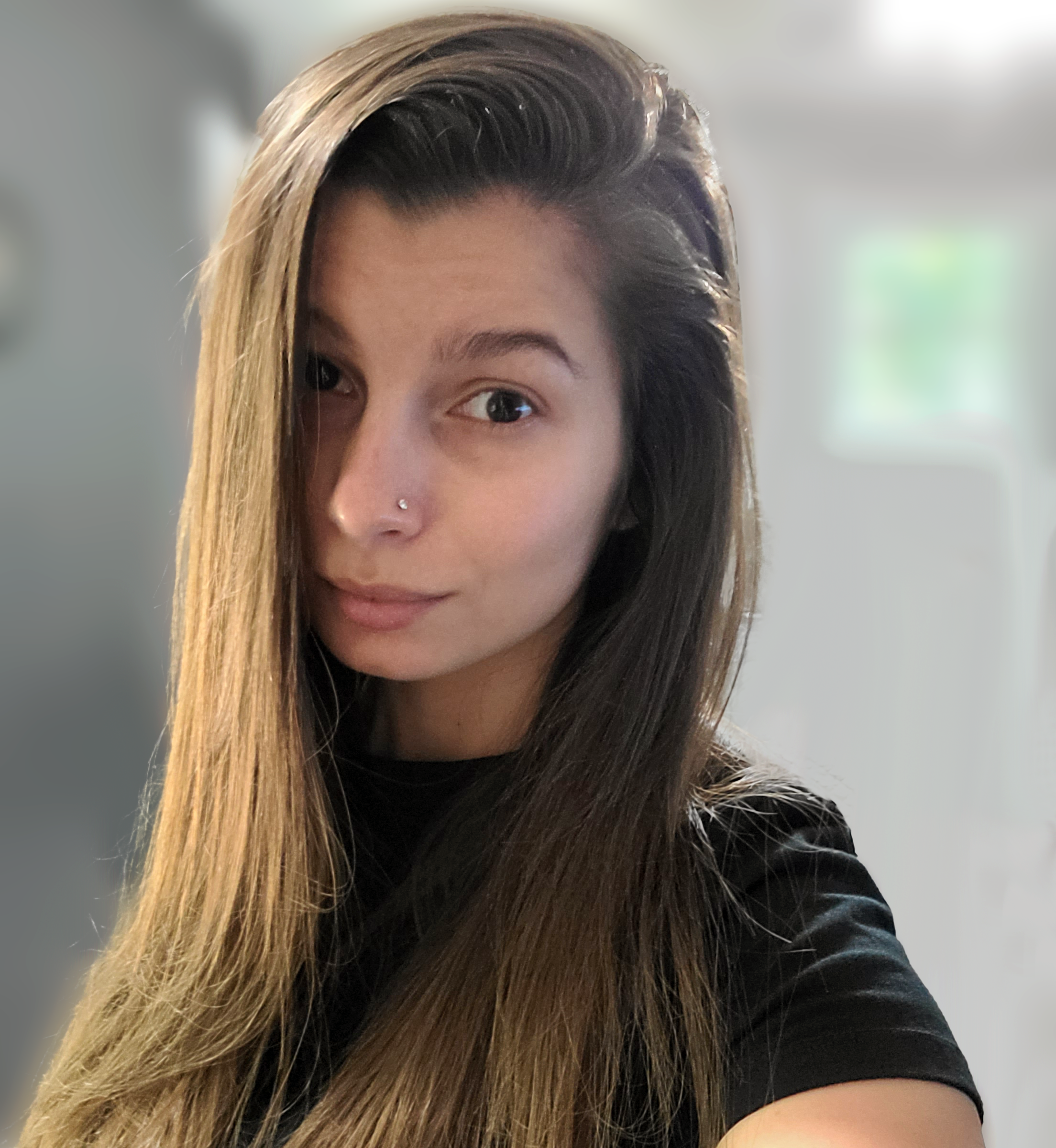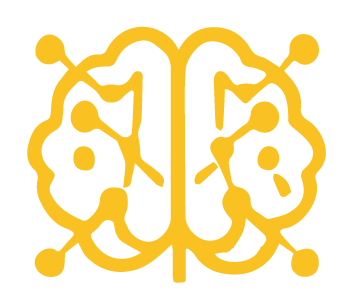Danielle Jones
Cognitive neuroscientist interested in identifying systematic measurement error in self-report and neurobehavioral methods.

- Area: Cognition and Cognitive Neuroscience
- Position: Graduate Student
- Institution: Florida State University
About Me
Entering academia without a roadmap
I was raised in a working-class family that ran small sign businesses. By my teenage years, I was regularly assisting with installations, building signs, and navigating the logistics of running a hands-on, local operation. I didn’t grow up around academics, and I had no sense of what research looked like as a career.
That changed when I took a dual-enrollment psychology course at my local community college. One assignment required us to research a mental illness using peer-reviewed sources. As I began reading, it struck me that there were people whose entire careers were dedicated to understanding the brain. That idea was transformative. I didn’t just want to read about their work—I wanted to contribute to it. I became particularly interested in understanding why people engage in antisocial or harmful behavior.
I completed my associate’s degree at Indian River State College and transferred to Florida State University. At the time, I had only a vague sense of what research involved, but I knew I wanted to be part of it. That realization marked the beginning of my transition from a blue-collar background to a career in academic research.
How do we even measure a "psychological construct"?
I joined my first research lab in my second semester at Florida State, where I assisted with studies evaluating online interventions for internalizing psychopathology under the direction of Dr. Jesse Cougle. My interest in externalizing behaviors later led me to Dr. Christopher Patrick’s lab, where I contributed to EEG-based investigations of psychopathy and related traits.
Through these experiences, I became increasingly interested not only in what we study in psychology, but in how we measure it. I found myself questioning the validity and coherence of our central constructs—such as disinhibition, emotion regulation, or attentional control—across self-report, neural, and behavioral data. I was particularly drawn to methodological tensions in the field: discrepancies between measurement modalities, challenges of cross-method convergence, and the role of temporal dynamics in capturing trait-like versus state-like features of psychological functioning.
Following graduation, I completed post-baccalaureate training in Dr. Keanan Joyner’s lab, where I focused on advanced quantitative methods and multi-modal assessment. My work emphasized scale development, repeated measures designs, and the analysis of temporal patterns in self-report and EEG data. This period solidified my commitment to developing and refining tools for capturing individual differences in psychopathology—particularly those that account for within-person variability and the complex dynamics of cognitive and emotional processes over time.
The role of time, systematic measurement error, and participant engagement.
Today, my work revolves around three core aims:
1. Capturing dynamics at the trial level. I focus on breaking down averaged signals in cognitive tasks to examine trial-level fluctuations in performance and brain activity. I'm especially interested in the stability of a construct across time and trials, and have developed a method for estimating trial response consistency (tRC): a within-subject measure of variability that quantifies how reliable a metric is for an individual, on any given trial.
2. Understanding systematic measurement error. I’m investigating why daily symptom reports often diverge so dramatically from retrospective self-reports. How much of that gap is noise, and how much is telling us something meaningful about the limitations of our measurement tools?
3. Improving recruitment and data quality. I also study how we recruit and engage research participants. What draws people from different backgrounds to participate in our studies? What keeps them engaged? And what can we do to make participation feel more like collaboration than extraction?
My Research
Updated March 27, 2025
Published
Under Review
Symposia
Posters
My Funding
Training Awards
2025 - 2027
Connecting Memory Performance to the Accuracy of Self-Reported Psychopathology
$72,576 (over two years) for stipend and research expenses
2024 - 2025
The Effect of Episodic Memory on Retrospective Recall Bias of Self-Reported Psychopathology
$32,644 (over one year) for stipend and research expenses
Travel Awards
$600
Other Honors
Best Poster Presentation in Cognition and Cognitive Neuroscience
My Skills
My Research Positions
C.R.E.A.M. LAB
UNIVERSITY OF CALIFORNIA, BERKELEY
Research Engineer
January 2022 - Present
- Prepare and manage IRB documentation at Florida State University and Berkeley data collection sites
- Hire, train, and supervise team of undergraduate research assistant conducting EEG data collection at both study sites
- Spearheaded initial set-up of Berkeley lab space, including Biosemi EEG system
- Create and manage lab website
- Collaborated on study design
- Built automated workflow to recruit, screen, and track study participants through a fully online protocol
- Oversaw recruitment and participant management
- Managed study advertisement on Facebook and Snapchat
- Mentored undergraduate summer intern on creation of experimental task using PsychoPy
- Collaborated with a cosmetologist to design braiding pattern for cap application
- Utilized open-source template to create study recruitment website
- Created and oversaw recruitment advertisement through Facebook
- Built automated workflow to screen, track, recruit, and schedule community participants
- Enrolled and documented participant enrollment in TigerAware EMA software
- Maintained detailed records of participant enrollment, study materials, EMA completion, and payment
- Prepared reimbursement forms for participant payments and raffle prizes
- Built surveys using Qualtrics
- Oversaw and managed study enrollment through SONA
- Built surveys using Qualtrics
- Oversaw and managed study enrollment through SONA
CLINICAL NEUROSCIENCE LAB
FLORIDA STATE UNIVERSITY
Lab Manager
May 2020 - May 2023
- Hire, train, and supervise team of over 20 undergraduate research assistants collecting data on multiple protocols
- Maintain supply inventory
- Prepare IRB documents for initial submissions and revisions
- Write detailed Standard Operating Procedure documents for study protocols for undergraduate research assistants
- Process EEG data using MATLAB and Brain Vision Analyzer (BVA)
- Troubleshoot lab equipment (e.g., shock box, button box, head boxes) and data collection software (e.g., Curry8, E-Prime)
- Clean, document, and organize study data
- Build automated workflows for study recruitment and participant scheduling
- Perform health screening interviews via phone
- Led efforts to organize and create secure backups of data contained on lab servers to protect against data loss and file corruption
Undergraduate Research Assistant
January 2019 - April 2020
- Explained study procedures, answered participant questions, obtained informed consent, administered computerized and paper questionnaires, and debriefed participants according to protocol
- Applied 64-channel EEG caps and other biometric sensors (EMG, SCR, EKG) and recorded psychophysiological data using Neuroscan Curry8 program
- Instructed participants on how to complete experimental tasks and supervised practice trials
- Calibrated harmless shocks to participant’s tolerance to be administered in experimental tasks
- Recorded behavioral observations during task completion and kept detailed logs of study visits
Other Involvement
- Digitized and entered archival data
- Evaluated and documented image quality of MRI scans using MRIcron
- Assisted in the training of new undergraduate research assistants, instructing them on study protocol, participant interaction, EEG cap application, and data collection software
- Assist in task design and creation of counterbalanced run orders
- Built automated recruitment system
- Programmed and piloted study tasks
- Carried out recruitment of community and student sample
- Managed Facebook advertisements
- Wrote initial IRB application and assisted in revisions
- Centrifuge and aliquot blood samples
- Oversaw the design and testing of new study tasks built in PsychoPy
- Recruited study participants
- Maintained detailed records of expenditures
- Oversee and manage study enrollment through SONA
COUGLE LAB
FLORIDA STATE UNIVERSITY
Lab Manager
May 2020 - April 2021
- Monitored online data collection progress and answered participant questions
- Recreated lab website utilizing open-source template and custom code
- Created curriculum for undergraduate research assistants to keep them engaged with the lab and provide consistent research-related learning opportunities despite all lab operations being remote
- Cleaned, scored, and merged self-report data from multi-timepoint assessments
- Created automated workflows for screening, recruitment, and participant scheduling
Undergraduate Research Assistant
May 2018 - April 2020
- Data collection
- Created automated workflow that utilized participant responses on a baseline assessment to customize display on daily behavior checklist assessments
- Created automated workflow that assigned participant to treatment group at baseline and automatically scheduled and sent links to group-specific interventions and assessments via text message
- Revised IRB materials to adapt in-person protocol for remote data collection in response to pandemic-related campus closures
- Created automated workflow that assigned participant to treatment group at baseline and automatically scheduled and sent links to group-specific interventions and assessments via text message
- Created detailed tracking documents to monitor participant compliance
- Revised IRB materials to adapt in-person protocol for remote data collection in response to pandemic-related campus closures
- Created automated workflow that assigned participant to treatment group at baseline and automatically scheduled and sent links to group-specific interventions and assessments via text message
- Created detailed tracking documents to monitor participant compliance
- Oversaw and managed study enrollment through SONA
- Scored online community screeners and sent out recruitment emails to those who met eligibility for the study
- Scheduled emails with links to online study interventions and future assessments
- Posted recruitment advertisements on Craigslist and other websites
- Performed data entry tracking participant completion of study interventions and assessments
- Explained study procedures, answered participant questions, obtained informed consent, and debriefed participants according to protocol
- Interviewed participants using materials adapted from the MINI
- Explained study procedures, answered participant questions, obtained informed consent, and debriefed participants according to protocol
- Administered SCID-5 module for Body Dysmorphic Disorder
- Administered MINI modules for Social Anxiety Disorder, Anorexia Nervosa, and Bulimia Nervosa
- Administered behavioral task measuring anxiety-related factors
- Scheduled follow-up lab visits and dates for participants to take at-home assessments
Consulting
Behavioral Activation for Depression Study
October 2022 | PI: Greg Hajcak, PhD
Exposure-Based Intervention for Perfection Study
August 2022 | PIs: Sarah Redden, MS & Jesse Cougle, PhD
Social Anxiety Treatment Study
Janaury 2022 | PIs: Nora Mueller, MS & Jesse Cougle, PhD
EDEN Lab
February 2024 | PI: Rebecca Waller, PhD, University of Pennsylvania
My Other Positions
Assitant to the Director of Clinical Training
PSYCHOLOGY DEPARTMENT | FLORIDA STATE UNIVERSITY
August 2022 - Present
- Collate laws, rules, and regulations from all states and territories related to licensure as a clinical psychologist to determine if the clinical program meets education requirements
- Collect and organize field placement data for the clinical program
- Organize and disseminate resources on applying for internship to graduate students in the clinical program
- Collected and prepared data for the APA’s Annual Report Online (ARO)
Project Manager
DIVERSITY PROJECT | FLORIDA STATE UNIVERSITY
August 2022 - March 2023
- Hired, trained, and supervised research assistants to code variables from application materials (i.e., curriculum vitae, personal statements, transcripts) to psychology graduate programs at Florida State University
- Managed, cleaned, and merged data in preparation for analyses
Infrastructure Projects
The administration of complex research protocols can be made easier with automated processes. I build webapps that integrate with things like Google Drive and Qualtrics to simplify data collection.
Using GoogleAppscript, I have created a method to track participant responses in Qualtrics. The webapp sends this compliance information back to Qualtrics which can then be used to:
- Restrict participants to only complete the assigned assessment one time.
- Display compliance/incentives earned to participants at the beginning of their survey.
Using Qualtrics features, I have created a system to assign response date/time windows based on a participant's time zone and the date they complete their enrollment. For example, a researcher could specify that a participant will take a survey for the next 7 days between 9am and 9pm. If the participant opens the survey at the wrong time or the wrong day, they will receive an error message.
In Qualtrics, I have developed a way to collect information about people's typical quantification (e.g., typically take 3 puffs of a cannabis vape pen) and apply that to a sliding scale - allowing participants to respond to the question proportional to their typical use. Moving the slider results in scaling the numeric value of their custom response.
Using Google Appscript, I have developed a method to assign external codes to participants, ensuring that the same code is never given out twice. This has a wide variety of possible applications.
Using Google Appscript, I created a solution that checks for duplicate entries using the same identifying information and prevents the participant from progressing through the survey if they had previously completed it.
Using freely available API, I developed an address validator that can be integrated into Qualtrics surveys to ensure that the address a participant provides is both real and in the proper format.
Using Google Appscript, I created a way to track the number of surveys initiated, still in progress and within the allowed time period, and completed.

